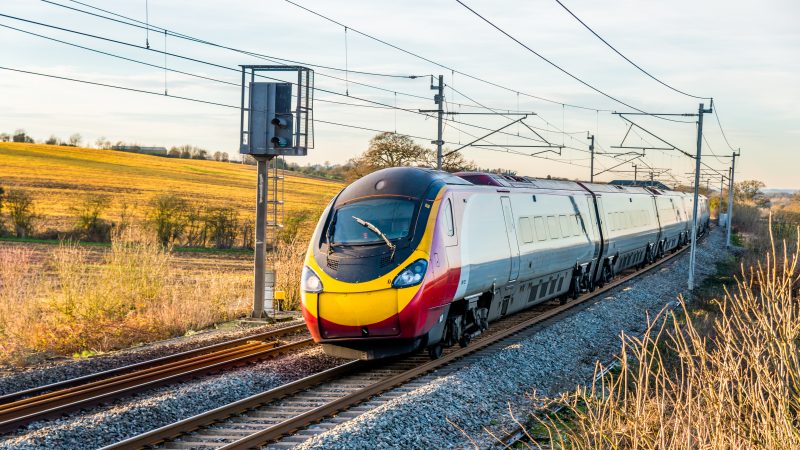
Members of train drivers’ union ASLEF have voted to go on strike in a dispute over pay, with general secretary Mick Whelan accusing the government of having “no interest in finding a resolution”.
Train drivers working for eight companies – Arriva Rail London, Chiltern Railways, Great Western, LNER, Northern Trains, Southeastern, TransPennine Express and West Midlands Trains – have today voted to take strike action.
Members voted strongly in favour of industrial action, with an average of 92% of drivers across the eight companies voting to go on strike. Arriva Rail London, which operates the London Overground, saw the highest proportion vote in favour of striking – 98.9%.
Whelan stressed that strikes are “always the last resort”, saying: “We don’t want to inconvenience passengers – our friends and families use public transport, too – and we don’t want to lose money by going on strike.
“But we’ve been forced into this position by the companies driven by the government. Many of our members – who were, you will remember, the men and women who moved key workers and goods around the country during the pandemic – have not had a pay rise since 2019.
“With inflation running at north of 10% that means those drivers have had a real-terms pay cut over the last three years. We want an increase in line with the cost of living – we want to be able to buy, in 2022, what we could buy in 2021.
“It’s not unreasonable to ask your employer to make sure you’re not worse off for three years in a row. Especially as the train companies are doing very nicely – thank you – out of Britain’s railways, with handsome profits, dividends for shareholders, and big salaries for managers.”
Whelan added: “We’re happy to talk to anyone to do a deal and make sure Britain’s railways aren’t disrupted. The government is restricting what the operators can offer, but then refusing to get involved in negotiation. They seem to have no interest in finding a resolution.”
A Department for Transport spokesperson said: “The train drivers [ASLEF] represent earn, on average, just under £60,000 per year – more than twice the UK median salary and significantly more than the very workers who will be most impacted by these strikes.
“Our railway is in desperate need of modernisation to make it work better for passengers and be financially sustainable for the long term. We urge the union bosses to reconsider and work with its employers, not against them, to agree a new way forward.”
Train drivers were asked two questions as part of today’s ballot: “Are you prepared to take part in industrial action short of a strike?” and “Are you prepared to take part in industrial action consisting of a strike?” Further ballots of ASLEF members at Avanti West Coast, CrossCountry and Direct Rail Services will close on July 27th.
The full results of the vote on strike action were as follows:
Arriva Rail London:
Yes: 637 (98.9%)
No: 7 (1.1%)
Turnout: 92.5%
Chiltern Railways:
Yes: 217 (92.3%)
No: 18 (7.7%)
Turnout: 86.4%
Great Western:
Yes: 1,049 (86.1%)
No: 170 (13.9%)
Turnout: 86.3%
LNER:
Yes: 323 (88.5%)
No: 42 (11.5%)
Turnout: 89.0%
Northern Trains:
Yes: 1,562 (95.2%)
No: 78 (4.8%)
Turnout: 88.5%
Southeastern:
Yes: 741 (91.6%)
No: 68 (8.4%)
Turnout: 86.2 %
TransPennine Express:
Yes: 426 (94.2%)
No: 26 (5.8%)
Turnout: 84.8%
West Midlands Trains:
Yes: 636 (89.6%)
No: 74 (10.4%)
Turnout: 83.5%




More from LabourList
‘The Sherriff of Wild Westminster: what must change in elections bill’
‘The hope that kills you’: Reflections from the final day in Gorton and Denton
MPs, union leaders and organisations react to ‘bruising’ Gorton and Denton result